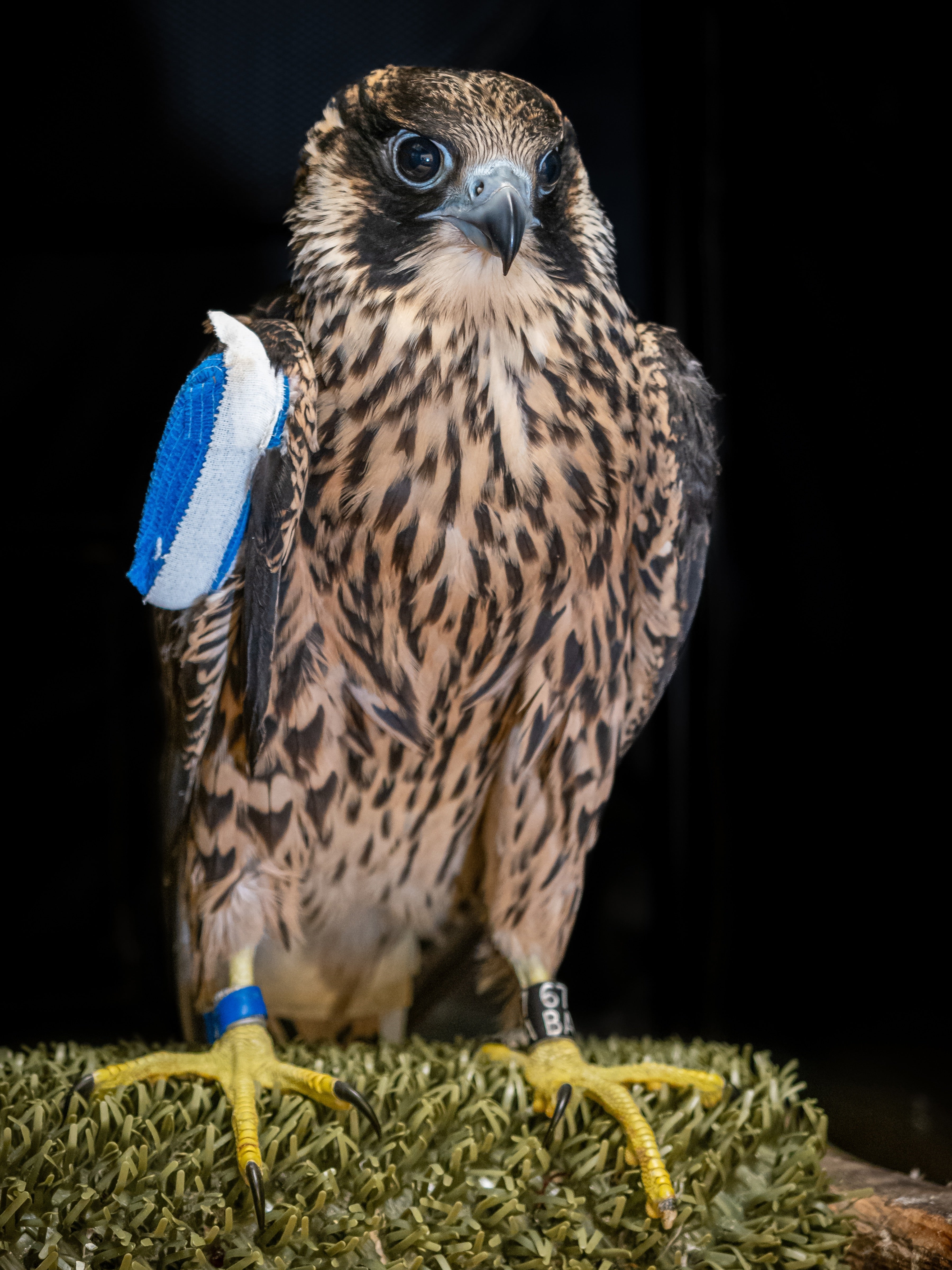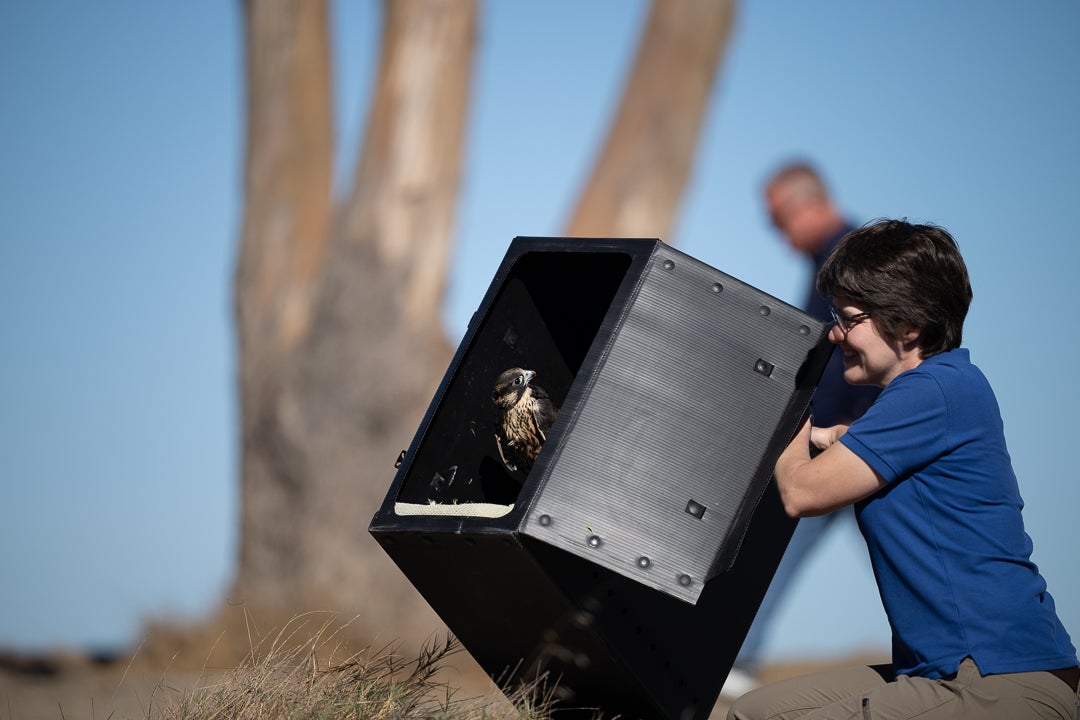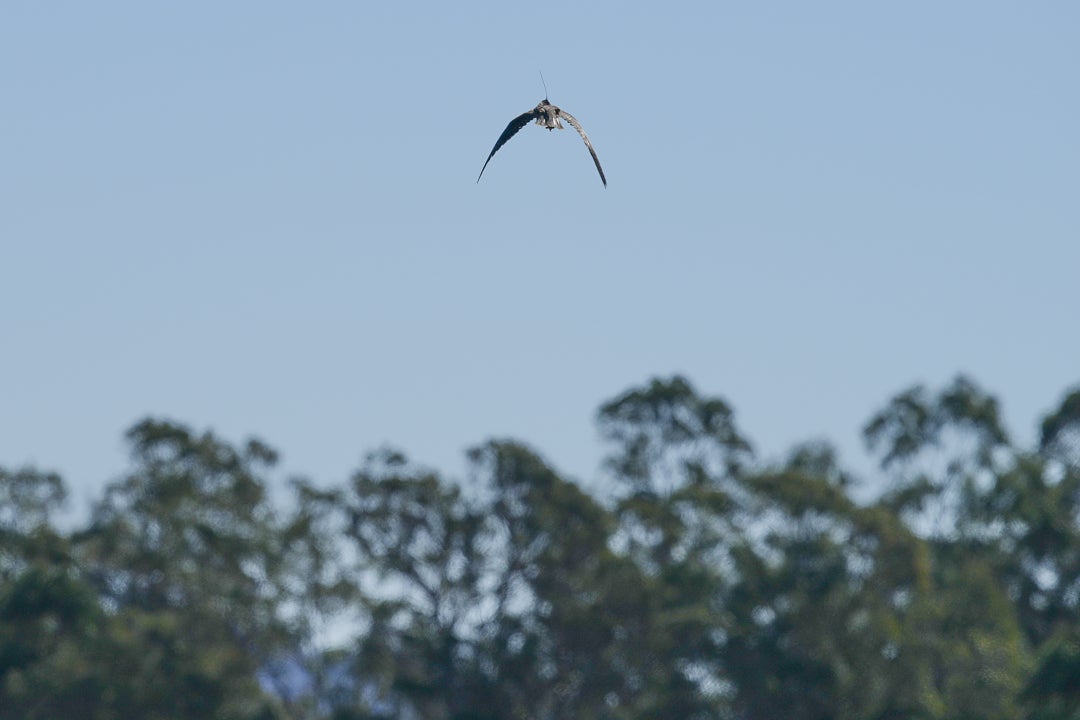UPDATE: Dec 5: An assessment completed this week determined that pneumonia caused the Oct. 23 death of Nox. Read a longer update from UC Davis School of Veterinary Medicine and UC Berkeley.
UPDATE, Oct 24: We are deeply saddened to report that Equinox (Nox) passed away last night, Oct. 23. A post-mortem exam is being conducted to determine the cause of death. Further information will be shared on the UC Davis California Raptor Center’s Facebook page.
UPDATE, Oct. 23: Equinox, or Nox, the peregrine falcon, is recovering at the UC Davis Veterinary Medical Teaching Hospital following recapture on Oct. 21 after his Oct. 18 return to the wild. Upon re-rescue, he presented with acute emaciation. He received a blood transfusion on Oct. 22 from Phoenix, an ambassador peregrine falcon. Nox is eating and currently stable, though the reasons for his emaciation remain unknown.
“He looks much better than he did when he came in,” said Michelle Hawkins, director of the California Raptor Center at UC Davis. “But he’s not out of the woods by any stretch of the imagination.”
Further updates will be made available on the California Raptor Center’s Facebook page.
UPDATE, Oct. 22: Nox was recaptured Oct. 21, just hours after yesterday's news release of his Oct. 18 return to the wild. He has no broken bones but remains in care. More updates will be provided soon.
Equinox (Nox), a peregrine falcon whose life has been chronicled on a popular web cam feed, was released to the wild Friday, Oct. 18, after suffering a broken wing in July. His release within the East Bay Regional Parks occurred roughly three months after his surgery and recovery at the California Raptor Center, a program of the UC Davis School of Veterinary Medicine.
Nox is among the peregrine falcons born to parents Annie and Archie, who nest atop UC Berkeley’s Campanile beneath a web cam that has been livestreaming the family to millions of bird-lovers since 2019.
Press kit and b-roll of Nox and his release.
“Everything went well,” said Michelle Hawkins, director of the California Raptor Center and a professor in the UC Davis School of Veterinary Medicine. “The bird can fly beautifully, and it can hunt and eat its kill. To us, it doesn’t matter how famous they are or not. Every bird to us is as important as every other bird. But it’s so great to be at that point where you see them flying away.”
Young Nox was found in distress at the Berkeley Marina on July 3. He was retrieved from the water by Bay Raptor Rescue, transported to WildCare in San Rafael and transported July 5 to UC Davis Veterinary Medical Teaching Hospital, where he underwent surgery to repair fractures in his right wing.
After surgery, he spent more than two months recovering at the California Raptor Center, receiving care from its raptor specialists and pre-flight conditioning from falconer and former California Raptor Center Director Bill Ferrier.

While the cause of Nox’s injury remains unknown, center staff note that veterinarians would have needed to euthanize a bird with this kind of wing injury 20 years ago. But technology and advances in veterinary medicine have made it possible for birds like Nox to fly free in the wild again.


“Orthopedic materials have made it possible to put together tiny little bones like what’s in your pinky finger. That gave the bones the structure that was necessary for Nox’s healing,” Hawkins said. “This bird is the bird that keeps giving. He has a satellite transmitter on now, and there weren’t any placed on Campanile fledglings before. We can’t wait to see where he goes as he begins to define his own adult territory.”
Media Resources
- Kat Kerlin, UC Davis News and Media Relations, 530-750-9195, kekerlin@ucdavis.edu
- Press kit and b-roll of Nox and his release.
